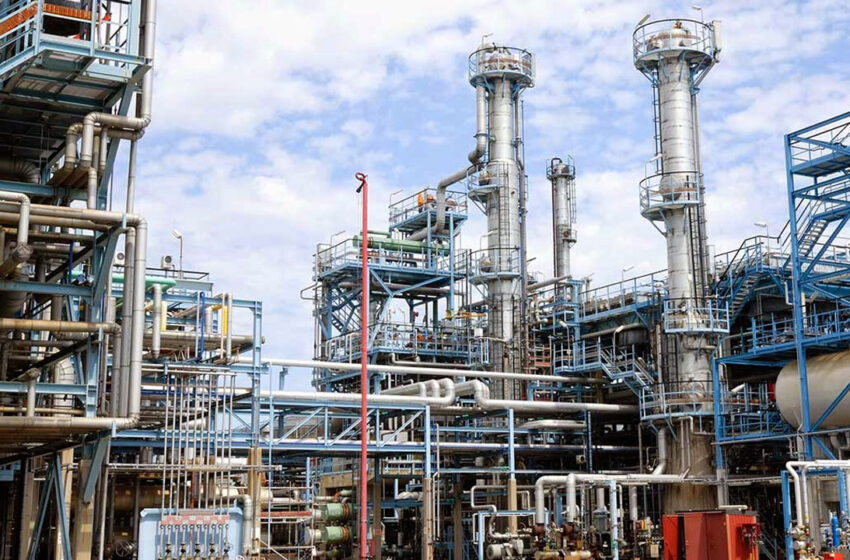NNPC: What you need to know on financial discrepancies, refinery woes, and potential sale

Port Harcourt Refinery
The Nigerian National Petroleum Company Limited (NNPCL) is once again making headlines, but not for oil production breakthroughs. Instead, the state-run oil giant is entangled in a widening financial scandal involving ₦210 trillion in unexplained discrepancies, all while its long-troubled refineries face potential shutdown or sale despite billions in repair costs. With oversight pressure mounting and industry stakeholders raising red flags, NNPC is standing at one of the most critical junctures in its corporate history.
NNPC Under Fire: Shunning Senate Probe on ₦210 Trn Discrepancy
Nigeria’s state oil company, NNPC Limited (NNPCL), has once again refused to appear before the Senate Public Accounts Committee probing a colossal ₦210 trillion discrepancy in its 2017–2023 audited financial statements.
High-ranking officials, including the CEO, were absent, citing an OPEC conference. The Senate has issued multiple ultimatums, now warning of constitutional sanctions if NNPC continues non-compliance . Senators emphasize they’re not accusing NNPC of theft, but demand transparent explanations for the unexplained sums .
Finance Chief Cites Retreat; Senate Demands Answers Now
In response, NNPC’s CFO requested a two-month extension, citing a management retreat, but this move was rejected by the Senate. The panel has set a firm 10-working-day deadline for compliance .
Analysts suggest the audit findings may be rooted in misaligned accounting entries, assets and liabilities not properly reconciled, prompting Senate intervention .
Refineries in Crisis: After $18 Bn Rehab, Still Non-Operational
A harsh verdict has come from Aliko Dangote, Africa’s wealthiest man, who says Nigeria’s refineries in Port Harcourt, Warri, and Kaduna may never operate again, despite an estimated $18 billion sunk cost .
Dangote compared the rehabilitation efforts to “modernising a 40-year-old car”, warning that obsolete infrastructure is ill-suited for modern demands .
NNPC May Sell Refineries: CEO Confirms Strategic Review
NNPCL’s CEO, Bayo Ojulari, has confirmed that after $3 billion in recent repairs, the company is considering the sale of its 445,000 bpd combined capacity refineries .
Speaking at the OPEC International Seminar, he emphasised the unplanned challenges and misaligned technologies making operations too complex.
READ ALSO
Dangote Refinery reduces fuel prices again: What consumers needs to know
Buhari unveils NNPC Ltd, assures Nigerians of energy security
Implications: Fuel Scarcity, Policy Shifts, and Economic Risks
The dysfunction of NNPCL’s refineries has fueled Nigeria’s dependence on expensive fuel imports, eroding economic stability and inflation control. Retailers have voiced frustration over lengthy delays in refinery rehabilitation .
Sale of state refineries could trigger major policy shifts, including public backlash, labour displacement, and debates about Nigeria’s energy autonomy in light of Dangote’s refinery expansion .
Accountability and Business Viability Hang in the Balance
NNPCL’s refusal to fully cooperate with the Senate, combined with the technical collapse of its refineries, casts doubt on the company’s governance and operational viability.
Banking on potential sale, NNPC may struggle to secure investor confidence without stronger regulatory oversight and financial transparency.
What Comes Next?
- Senate: Awaits NNPC’s full explanation of the ₦210 trillion financial gap, enforcing accountability.
- NNPCL: Plans to wrap up strategic review of refineries by year-end, with potential divestment steps.
- Stakeholders: Must weigh fuel supply, state revenue, and employment before any sale decision.
NNPC is currently at a crossroads. It faces simultaneous financial scrutiny and operational collapse. As calls for transparency intensify and refinery failures persist, the nation awaits answers, and the future direction of its oil giant. The next few months will be critical for Nigerians, the energy sector, and government confidence in NNPC’s stewardship.

